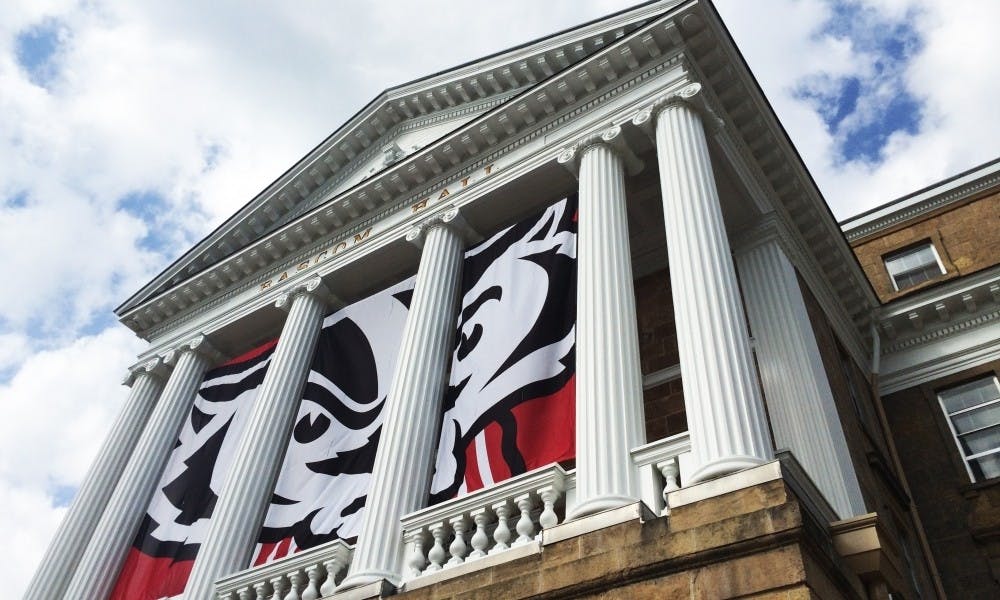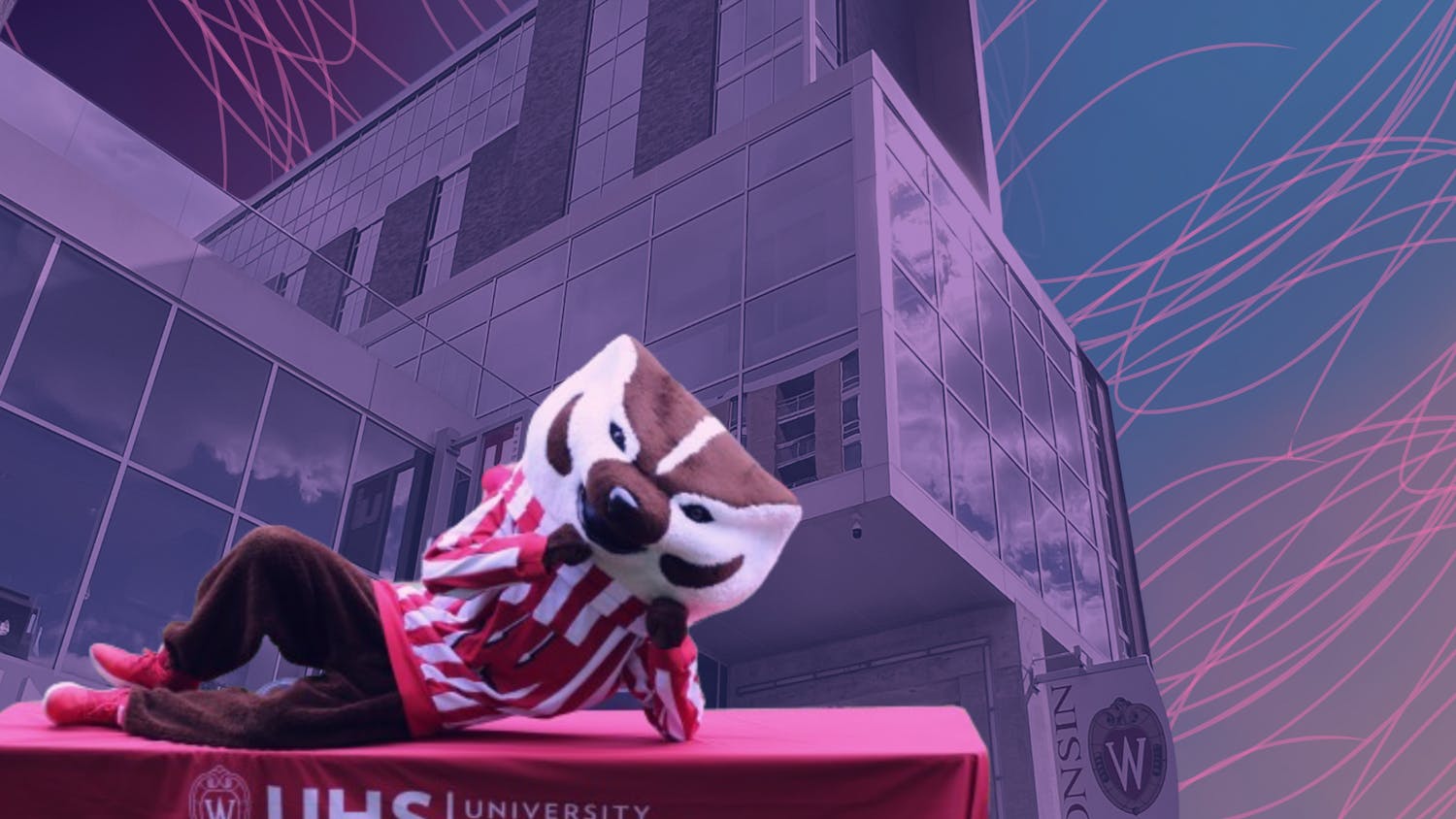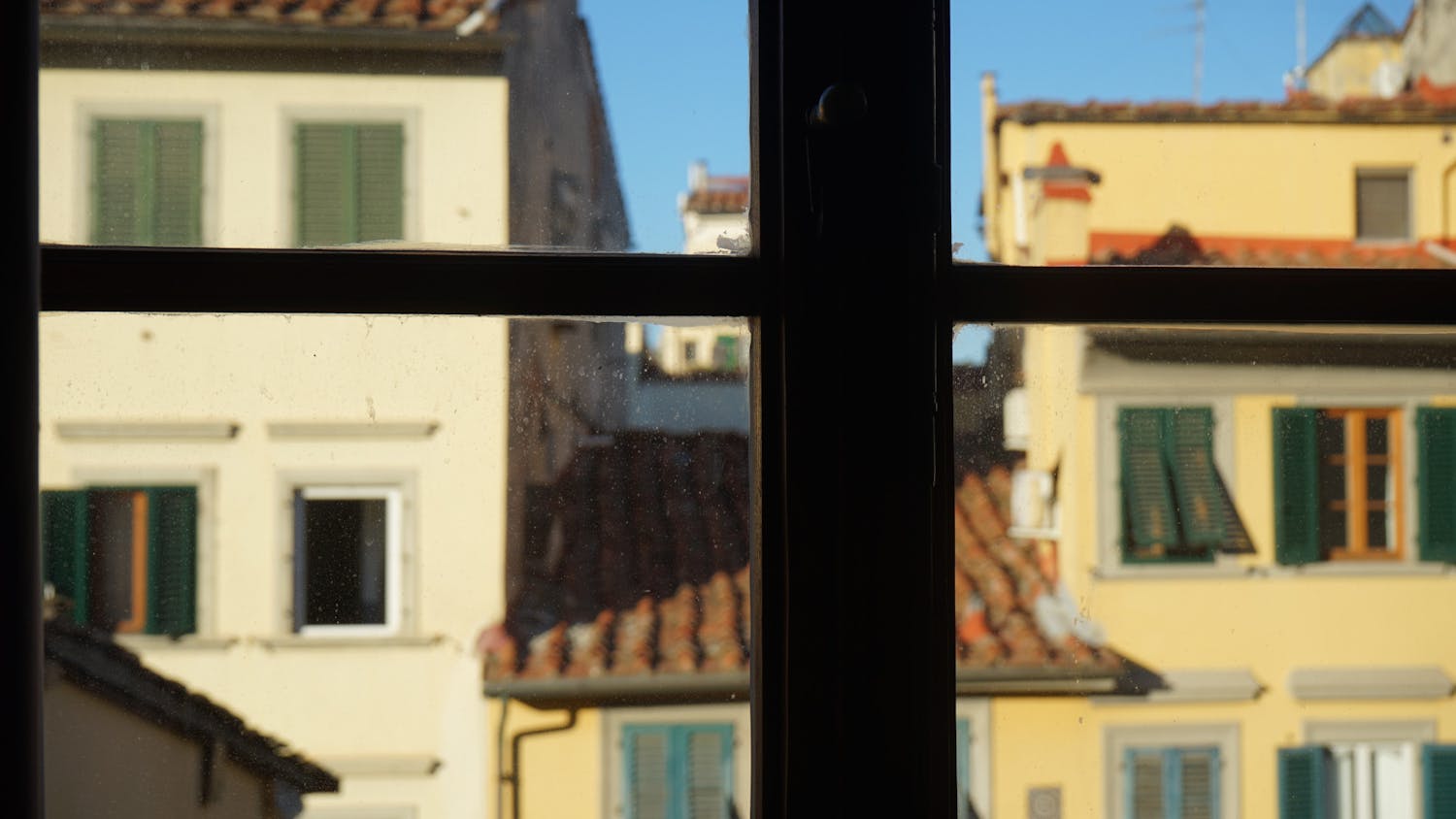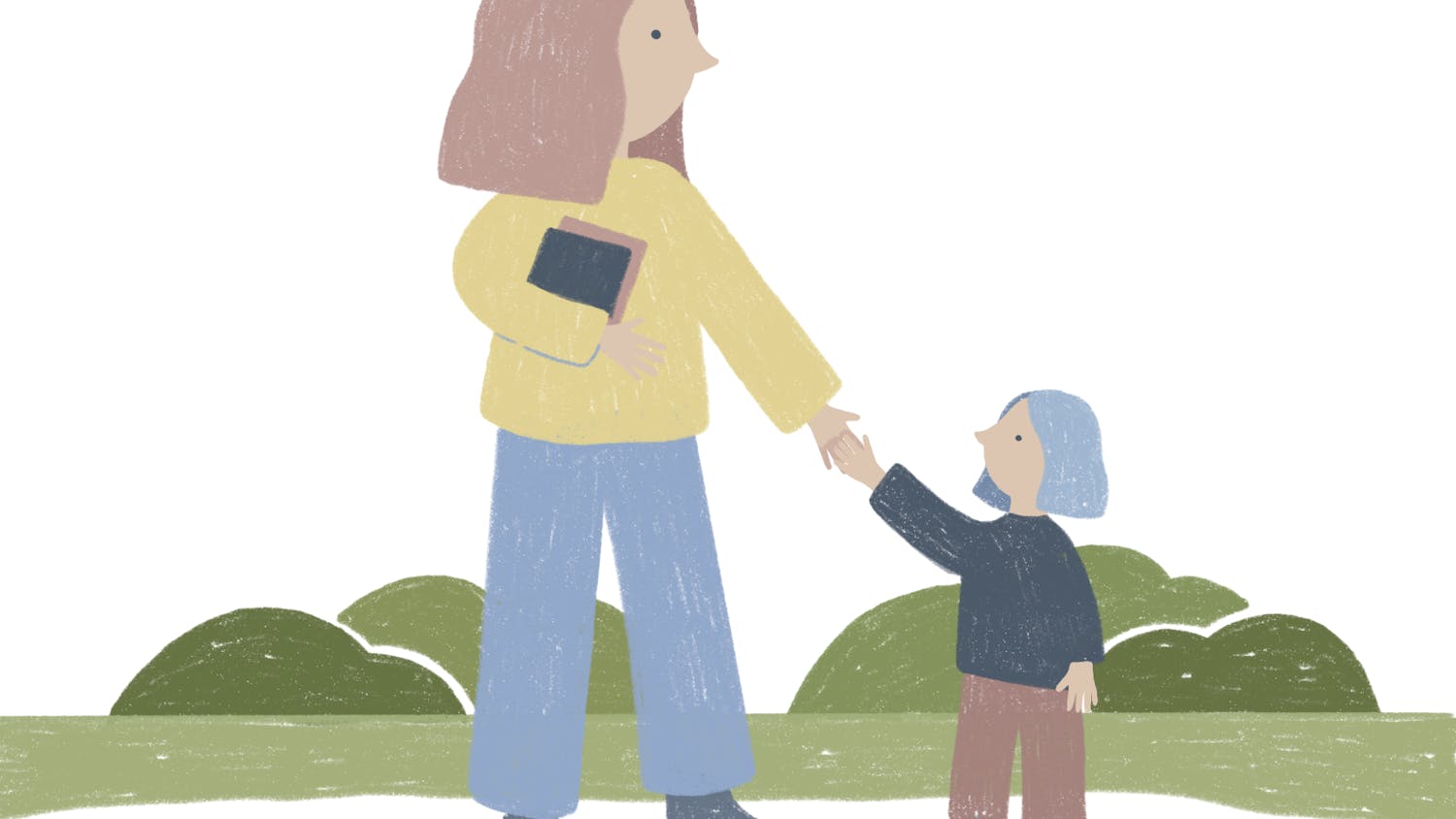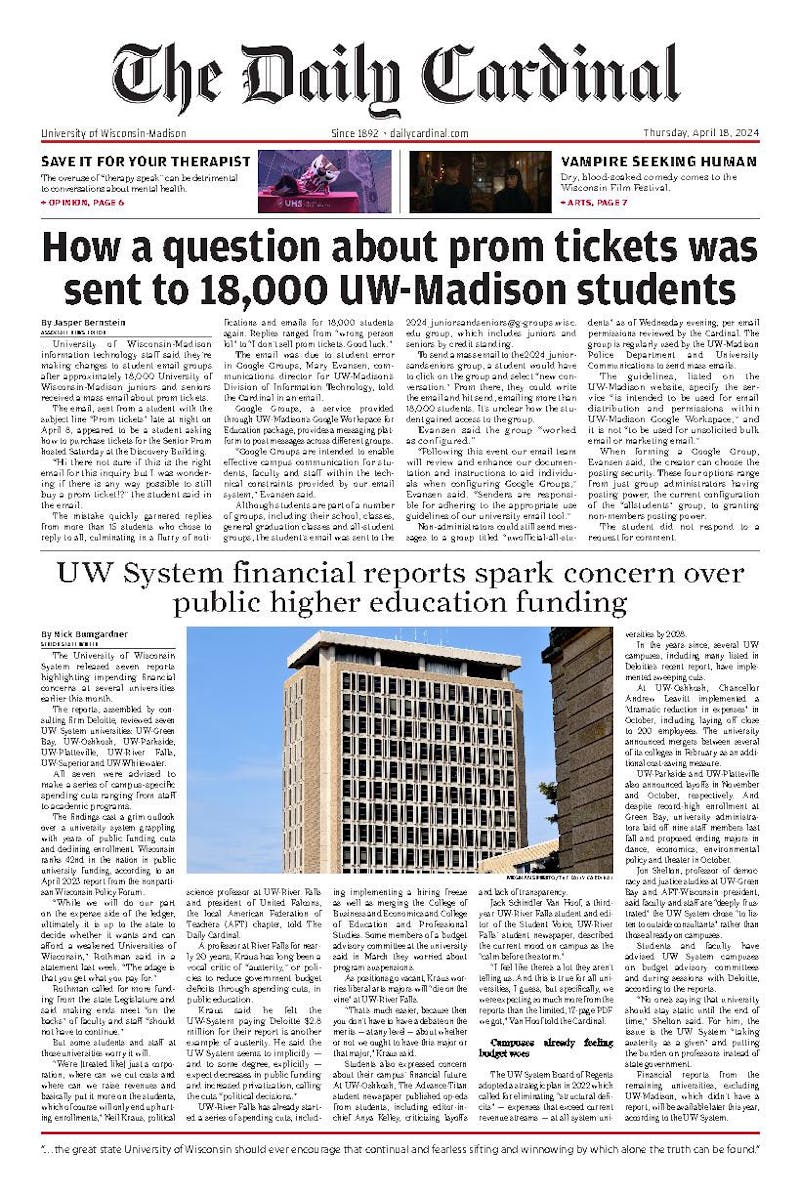It seems that, once again, our nation’s politicians have manufactured a dilemma: To teach or to research? If lawmakers are to be believed, it’s a “one or the other” proposition. Two mutually exclusive practices, neither of which informs the other, and one of which holds more value than the other. Unsurprisingly, this myth is once again playing out in current conversations about whether and how to fund Wisconsin’s next budget. And as with all ideas mythological and misguided, they become dangerous when put into the hands of people with real power to create policy.
It seems to me, though, that the “problem” invented by lawmakers this time is not a problem of teaching versus research. The problem is one of definition.
Let’s first pretend that there is an actual dichotomy—a line drawn between the work of teachers and the work of researchers. We have people who are neither teachers nor researchers defining the parameters around what counts as teaching and research. Sadly, their definition is reduced to the accumulation of minutes and hours a warm body physically spends inside of what is classically defined as a classroom (as though learning does not, cannot, and should not take place anywhere else).
What if we reduced the value of our politicians to the number of minutes and hours spent inside of a boardroom physically writing and re-writing policy? As much as I may disagree with the hearts, minds, and attitudes of those currently in power, I like to believe that their jobs—their value—depends on more than this simplistic idea of what lawmakers actually do.
In part, reductive notions about the actual work professors do is informed by survey results. In the case of the University of Wisconsin Madison, faculty spent an average of six hours a week in the classroom in 2015.
As a professor who teaches and conducts research, here is what I know about those flimsy-sounding 6 hours: Those hours likely account for face-time in two heavy-duty graduate classes, occupied by future leaders in fields pivotal to social progress. Those reported hours do not, and cannot capture the planning and grading involved in developing and managing those classes. When it comes down to it, there is actually no real way to determine how many hours of actual teaching or teaching-related time is being spent per week, a figure that is muddied by roster size, students with individual needs, teaching-related administrative requirements, grading lengthy assignments, and so on.
Put plainly, unless our politicians, lawmakers, and general public can say that they have done the work of a professor, they are not the people to ask.
Next, let’s take a glimpse at some of the research that has come out of the University of Wisconsin Madison:
- Improving radiology and healthcare;
- Innovations in plant science research and agriculture;
- Advancements in virus, cancer, stroke rehabilitation, spinal tissue, and sleep apnea research;
- Innovations in behavior and brain development, as these discoveries impact teaching and learning;
This is merely a snapshot of the University’s major contributions to society. It fails to capture the extraordinary amount of sustained time, rigor, and focus required to conduct such research in the first place. Further, this snapshot does not capture the fact thatUW-Madison ranks 7thamong the world’s universities in U.S. patents issued in 2015. It cannot capture that Wisconsin’s namesake institution is a world leader in Peace Corps volunteering and other service to the international community. And it certainly cannot capture the impact of this research and service on teaching.
Wisconsin is not the only state in this sinking ship of dangerous misguided assumptions about what professors actually do. Policy and budgetary decisions in North Carolina and Ohio are also informed by people who—quite literally—have no idea. For educators in these states, ignorance is not bliss. Ignorance can and will stymy medical, educational, and social progress—a dangerous game that impacts every last one of us.
There is no “one or the other.” Research on medical advances informs programs of medicine across the country; research on agriculture informs programs of agricultural science across the country; research on brain science informs programs of teacher education and educational psychology across the country. And it goes on.
In sum, research-based knowledge is fundamental to quality teaching. You cannot have one without the other.
My greatest university teachers have always been researchers. This is one of those few instances where, indeed, we can have it both ways.
I am a researcher because I am a teacher. I am a teacher because I am a researcher. My teaching suffers without my research. My research suffers without my teaching. Anyone who argues otherwise is easy to classify: They are neither teacher nor researcher (but they might be a lawmaker).
If lawmakers continue to propose such limited and harmful views of what teaching is, means, and looks like, then I propose that the value of the work of our representatives and state government rests on the minutes and hours spent thinking about the dangerous impact of their ideas on those they purport to serve. Anything less than 50-60 hours per week—the amount of time many of us in the University of Wisconsin System spend on a combination of research, teaching, and service to the broader community—is insufficient.
Christina

